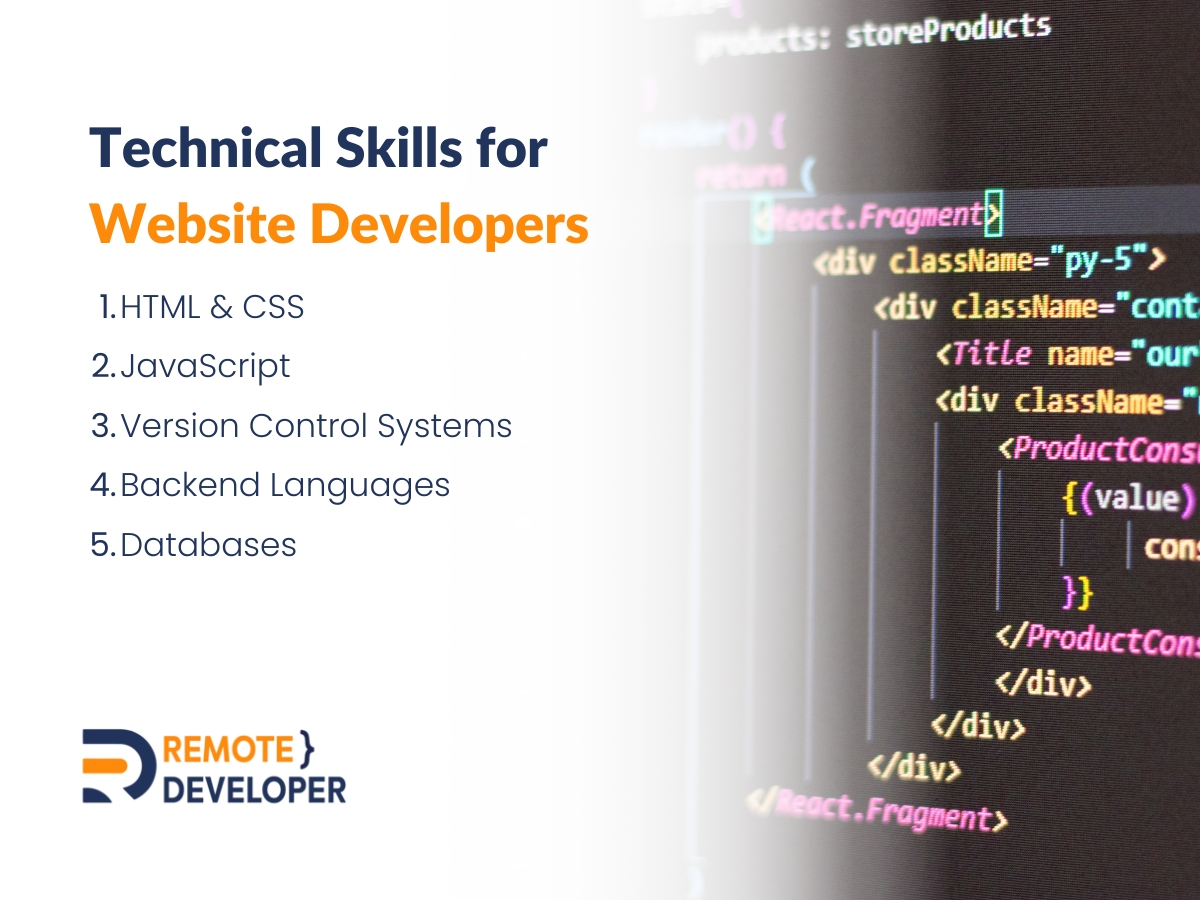Building a strong online presence begins with a well-crafted website, and behind every great site is a talented team of website developers. Whether you’re launching a startup or scaling a business, the right developers can shape your digital foundation with precision and purpose. As more businesses go digital, understanding the role of developers has never been more valuable.
Website developers are not just coders—they are problem-solvers, creative thinkers, and key players in shaping user experience. From layout and functionality to performance and responsiveness, developers play a crucial part in bringing ideas to life online. This article explores what website developers do, the types you may encounter, and the essential skills they bring to the table.
What Do Website Developers Do?
Website developers design, build, and maintain websites that are functional, attractive, and easy to use. They work behind the scenes to ensure that every element, from clickable buttons to smooth animations, performs as expected. Whether they focus on the front-end or the back-end, their job is to make sure the site runs efficiently for all users.
Their responsibilities also include testing, debugging, and ensuring compatibility across different devices and browsers. Developers work closely with designers, marketers, and clients to align the site with business goals. By blending technical expertise with creativity, they turn digital ideas into working products.
Types of Website Developers
Not all developers do the same job. Knowing the different types helps you choose the right expert for your project needs.

1. Front-End Developers
Front-end developers bring websites to life by building the parts people see and use, like layouts, buttons and menus. They use HTML, CSS and JavaScript to make sure websites work well on phones, tablets and computers. Their job is to make everything look good and work smoothly on every screen.
2. Back-End Developers
Back-end developers build the behind-the-scenes parts that make websites work properly. They set up servers, manage databases and handle things like logins or payments. Without them, many important features wouldn’t run at all.
3. Full-Stack Developers
Full-stack developers can do both front-end and back-end work, which makes them very useful for small teams or new businesses. They know the whole process, from design to coding and launching the site. Their wide skill set helps speed up work and keeps things clear between teams.
4. Web Application Developers
Web application developers create more advanced tools like booking systems, dashboards or online software. They use helpful tools called frameworks to build faster and keep things organised. These developers are a great choice for businesses that need more than a basic website.
5. CMS Developers
CMS developers work with systems like WordPress, Shopify or Webflow, which let people manage websites easily. They change themes and add features to match the client’s brand. This makes them perfect for businesses that want a site they can update on their own.
Technical Skills for Website Developers
Strong technical skills are the backbone of any great website. These are the tools web devs use to build fast, functional and user-friendly digital experiences.

1. HTML & CSS
HTML sets up the structure of a webpage, while CSS makes it look good with colours, spacing and layout. Together, they form the base of every website and are the first tools every developer learns. Without them, no website would have clear design or proper formatting.
2. JavaScript
JavaScript adds life to websites with things like pop-ups, drop-downs and live updates. It helps users interact with the page instead of just reading it. When paired with tools like React or Vue, it speeds up development and keeps websites running smoothly.
3. Version Control Systems
Using version control tools like Git helps developers track changes and work better with teams. If something goes wrong, it’s easy to go back to an earlier version of the code. Platforms like GitHub also make it easier to share work and review others’ updates.
4. Backend Languages
Languages like PHP, Python and Node.js help websites handle data and run core functions in the background. These tools power things like logging in, placing orders or sending emails. A good backend setup keeps the site running smoothly and safely.
5. Databases
Databases like MySQL or MongoDB store all the important information your website needs, such as user accounts, product listings or blog posts. They let your site pull up content quickly and keep everything organised. Knowing how to connect databases to websites is key for building anything dynamic.
Soft Skills for Website Developers
Being technically skilled is only part of what makes a great developer. Soft skills are just as important for building strong teams, clear communication, and successful projects.

1. Communication
Skilled developers can explain technical ideas in a clear and simple way, whether to clients or teammates. Good communication reduces misunderstandings and keeps projects aligned and on schedule. This is especially crucial in remote setups, where regular updates help build trust.
2. Problem-Solving
Every developer faces bugs and technical challenges, and the best ones solve them quickly and effectively. A sharp problem-solving mindset helps keep projects moving forward with fewer delays. This ability prevents small issues from turning into major setbacks.
3. Adaptability
Technology moves fast, and developers need to keep pace with new tools, frameworks and best practices. Adaptable developers bring fresh thinking and stay competitive by learning continuously. Their flexibility ensures the solutions they build stay current and effective.
4. Time Management
Juggling coding, testing and revisions requires solid planning and prioritisation. Developers with strong time management meet deadlines, hit milestones and deliver consistent results. Being dependable builds confidence with both clients and colleagues.
5. Teamwork
Web development often involves working closely with designers, testers and project leads. Developers who collaborate well, share ideas and give constructive input help projects run more smoothly. Strong teamwork leads to better outcomes and a more cohesive process.
Final Thoughts
Website developers help shape the online experience of any business. Whether you’re hiring in-house or looking for a web development service, they plan, code, test and launch websites that support your goals. Whether you’re building something new or improving what you have, the right developer can bring your ideas to life.
Understanding their roles and the skills they offer can help you make better hiring decisions or grow your own career in tech. As the digital space becomes more competitive, having a solid development team is more important than ever. With the right foundation, your website can become a powerful tool for growth and success.
Looking for skilled developers to build or improve your website? Contact us to get the right talent and support tailored to your project needs.

